The Art Factory
Here’s a post about what I was up to in November of 2006, not long after I first arrived in Beijing.
Yesterday was another adventure day, though not a tourist sort of adventure. I got a message from “Cloudtrapeze,” someone I met over on Last.fm, a Brit who’s been living in Beijing for some time. She said she would be going to the 798 Arts District to attend a show opening for an artist friend of hers. I did a bit of research and got directions to the place, which is further out from the center of town than I’ve been, between the Fourth and Fifth Ring Roads. It’s in the direction of the airport, and far enough that it’s not on any of the city maps that I have. Note to self: Get a better map.
In spite of the apparent distance, it’s not really that far – the taxi ride was only ¥19, less than it costs to get to the office. I got there around 2pm, which I now know is a little too early, since many of the galleries were not open yet. I wandered around, taking pictures and visiting the galleries that were open.
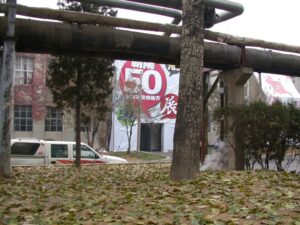
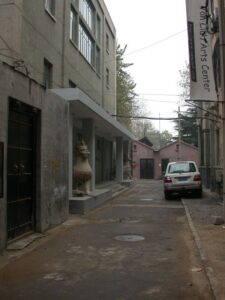
It’s an old factory area that has been repurposed. The juxtaposition of old industrial buildings and machinery with art is very interesting, and the artists obviously see a value in preserving some elements of the area’s history.
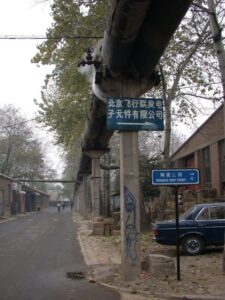
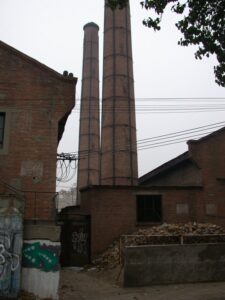
There is a wide variety of art represented here, from well-known foreign names to unknown locals, from big-money corporate-funded to starving independent.
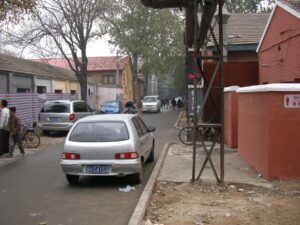
There’s a lot of sculpture around the area. Some of it seems plopped in completely random locations.
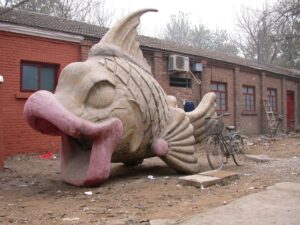
Now there’s a fish that apparently does need a bicycle.
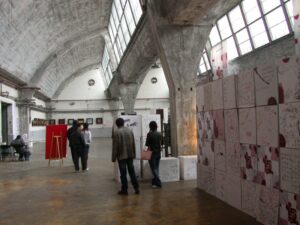
The largest gallery I saw looks like that inside. It’s a vast space with several different exhibits. The white boxes are part of a collaborative work: anyone can take up pen or brush and add to it.
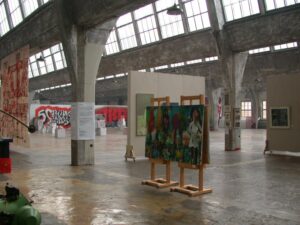
They’ve left some of the old machinery intact, like the green thing you can’t see much of in the foreground. I think some of the buildings had signs explaining their history.
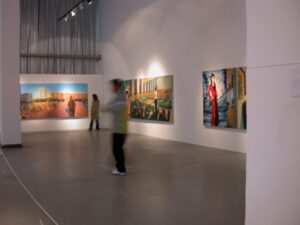
In the Long March Gallery, there is a series of very large paintings depicting modern Chinese women in their homes and jobs.
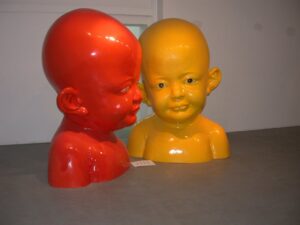
On the other side of the same gallery is some modern sculpture. For a clue to the scale, that’s a normal-size doorway behind the heads.
Here are some images from other galleries. Some galleries had signs prohibiting photography, and I respected their wishes.
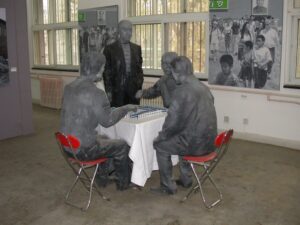
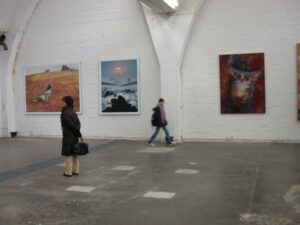
This last shot is of a gigantic photo of Beijing traffic. I looked at it and said, “I know where that is!” It’s a shopping mall not far from my office. I’ve gone there for lunch a few times.
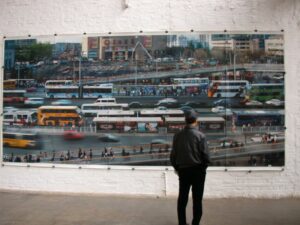
For some reason, I was fascinated by the idea of taking pictures of people taking pictures of art. I have several more along these lines.
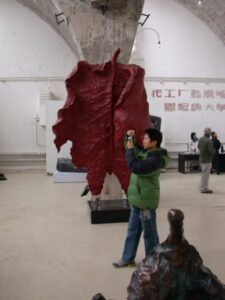
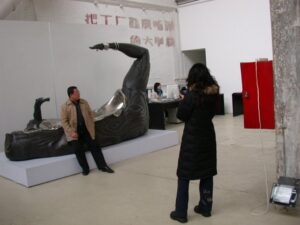
Here is another one of the large galleries, featuring a little loft area on the far end. The writing up above dates from the factory days, and is supposed to be inspirational slogans for the workers.
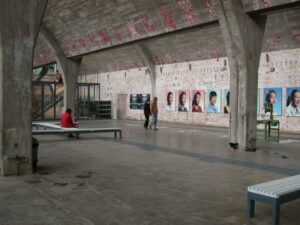
And this next shot is taken from up in the loft. I don’t know who the woman is that is being photographed. I saw this scene repeated many times during the day, a flock of photographers taking pictures of a woman posing. Is she a movie star? A singer?
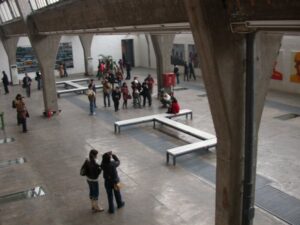
Late in the day I finally contacted Cloudtrapeze and found out which gallery to go to. It was on the outskirts of the area, where many of the buildings are still not developed.
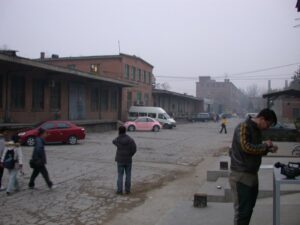
This is the Zen Gallery, where Stephanie’s work was on display. There was another artist doing a piece where patrons were given candles and asked to drip the hot wax on his face while he lay on the floor. The large poster to the left of the door is one of Stephanie’s works, depicting Vincent Van Gogh in a Red Army uniform. Her work, like much of what I saw, had a definite political component.
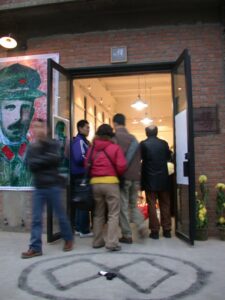
These particular residents of the district did not seem interested in political commentary.
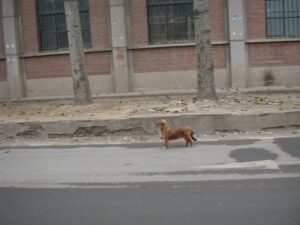
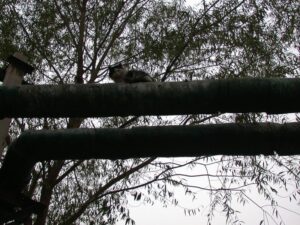
After it got dark, they closed up the gallery and I went to dinner at a tiny little restaurant in the district with Cloudtrapeze, Stephanie and another woman whose name I unfortunately did not catch. We had a good meal and toasted Stephanie’s first public showing.
And here are a couple final shots that didn’t fit in anywhere.
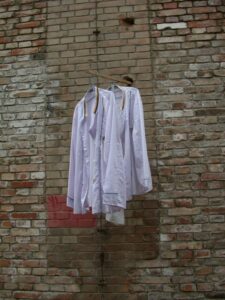
Does it seem like anything can be art if it’s presented in the midst of other art? This was outside in an alley across from a café.
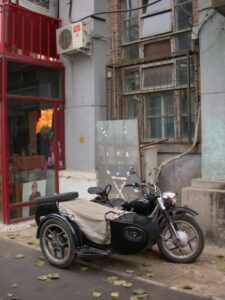
That’s one for the motorsports enthusiasts in the audience
One Comment